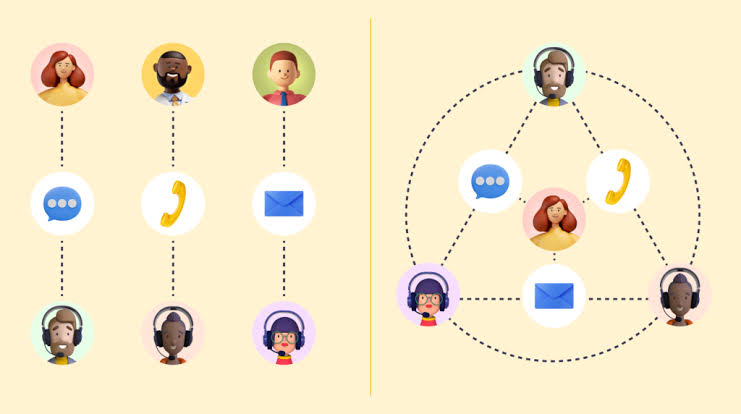
Which Strategy Scales Better? Omnichannel Vs Multichannel Marketing Explained
Discover how omnichannel vs multichannel marketing shapes brand success. Improve customer experience with the right marketing strategy.
Table of Contents
- The First Step In Customer Journey: Understanding Omnichannel vs Multichannel Marketing
- Omnichannel vs Multichannel Marketing – Core Differences
- How Omnichannel Marketing Enhances Customer Experience
- Multichannel Marketing Strategy Examples
- Which Approach Wins in Today’s Digital World- Omnichannel Vs Multichannel Marketing
- Omnichannel Vs Multichannel Marketing: Aligning Strategy with Customer Expectations
The First Step In Customer Journey: Understanding Omnichannel Vs Multichannel Marketing

In today’s fast-paced digital landscape, businesses are rethinking how they reach and retain customers. At the center of this transformation lies a crucial decision: omnichannel vs multichannel marketing. These two approaches may sound similar, but their impact on customer experience, retention, and brand loyalty couldn’t be more different.
Understanding the difference between omnichannel and multichannel marketing is not just a technical necessity—it’s a growth accelerator.
Omnichannel Vs Multichannel Marketing – Core Differences
Let’s break it down.
Multichannel marketing uses multiple platforms—like social media, email, websites, and in-store—to reach customers. Each channel works independently. Think of it as different musicians playing their own instruments… but not in harmony.
Omnichannel marketing, on the other hand, is an integrated symphony. All channels work together seamlessly to create a unified customer experience—whether the customer interacts via mobile app, website, social media, or physical store.
Key differences at a glance:
| Feature | Multichannel | Omnichannel |
| Integration | Minimal | Full integration |
| Focus | Channel-based | Customer-based |
| Experience | Inconsistent | Seamless |
| Strategy | Disconnected efforts | Unified campaigns |
Using omnichannel vs multichannel marketing approaches effectively depends on your brand goals. But the trend is clear: integration drives conversion.
How Omnichannel Marketing Enhances Customer Experience
Brands that prioritise omnichannel marketing aren’t just reaching people; they’re building relationships. This approach allows for a personalised, consistent journey across platforms, which dramatically improves the customer experience.
Imagine a customer adding a product to their cart on your mobile app, receiving a reminder on email, and then walking into your store where the product is waiting. That’s the power of how omnichannel marketing improves customer experience—no disjointed moments, only smooth transitions.
Platforms like Sephora and Starbucks use this tactic brilliantly. Their apps, websites, and in-store teams are synced, offering seamless interactions that customers love.
Multichannel Marketing Strategy Examples
Now, let’s not discount multichannel marketing altogether. It’s still effective—especially for businesses just beginning their digital journey. You might see this in small retail brands that post promotions on Instagram, send weekly newsletters, and run in-store sales, but each campaign is planned separately.
For example, a local boutique might:
- Use Instagram to showcase new arrivals
- Email discounts during holidays
- Run in-store loyalty programs
These multichannel marketing strategy examples work well for brands needing simple, budget-friendly outreach without complex integrations.
Which Approach Wins In Today’s Digital World- Omnichannel Vs Multichannel Marketing
The winner? It depends on your business maturity and resources.
✅ Choose multichannel marketing if you:
- Are a startup or local business
- Need fast, low-investment outreach
- Don’t yet have an integrated tech stack
✅ Choose omnichannel marketing if you:
- Aim for long-term brand loyalty
- Want to improve customer experience
- Have data systems that talk to each other (e.g., CRM, POS, social media analytics)
However, if your goal is to enhance customer engagement, increase conversions, and build consistent brand trust, then the winner is clear: an omnichannel marketing approach will outperform disconnected efforts every time.
Omnichannel Vs Multichannel Marketing: Aligning Strategy With Customer Expectations
So, what’s the final verdict on omnichannel vs multichannel marketing?
Multichannel is like casting a wide net. Omnichannel is like crafting the perfect fishing line for the right catch.
If you want to be heard in the noisy world of digital marketing, don’t just shout across every channel—speak with intention across connected experiences. That’s what omnichannel marketing does best.
Let’s build smarter. Let’s build together.





